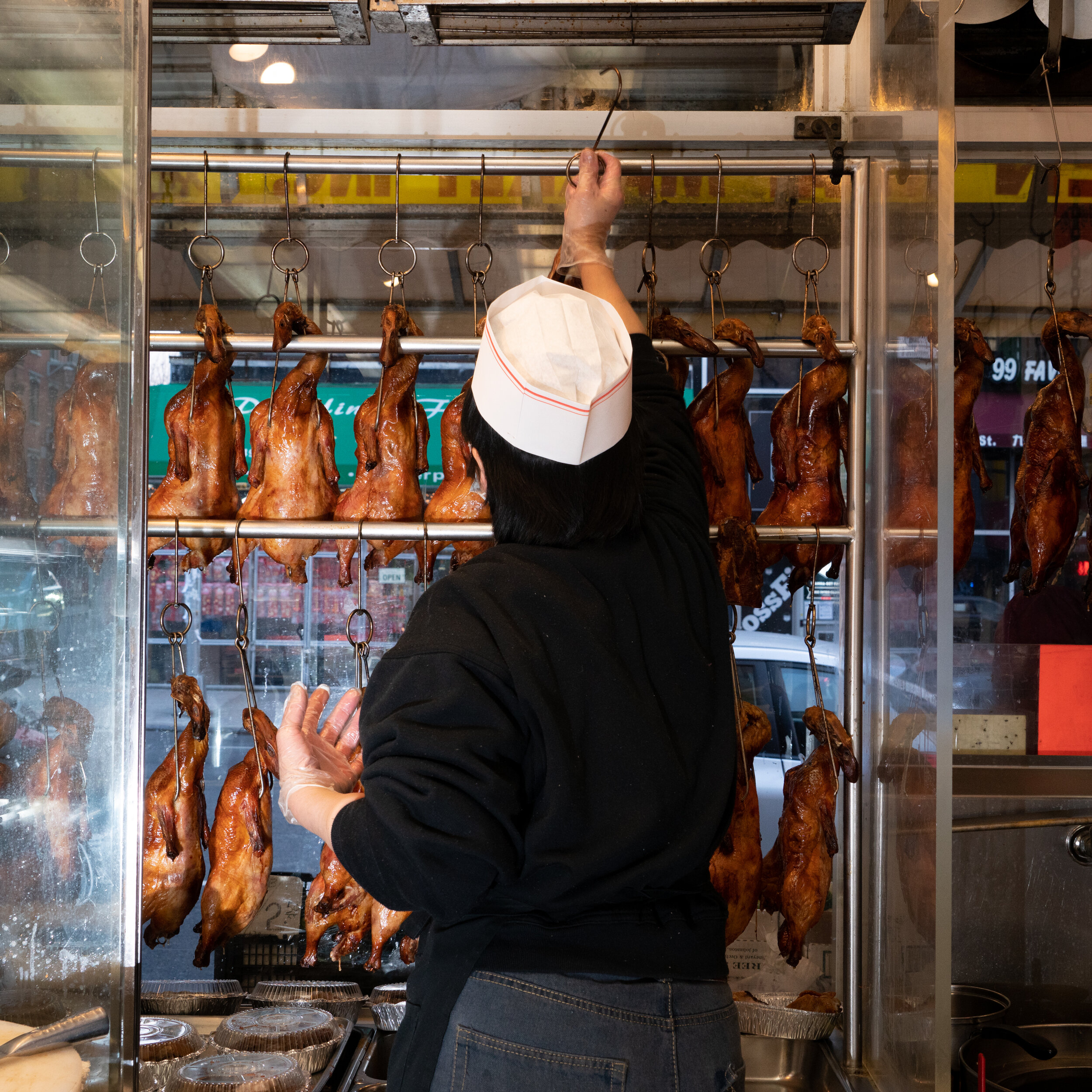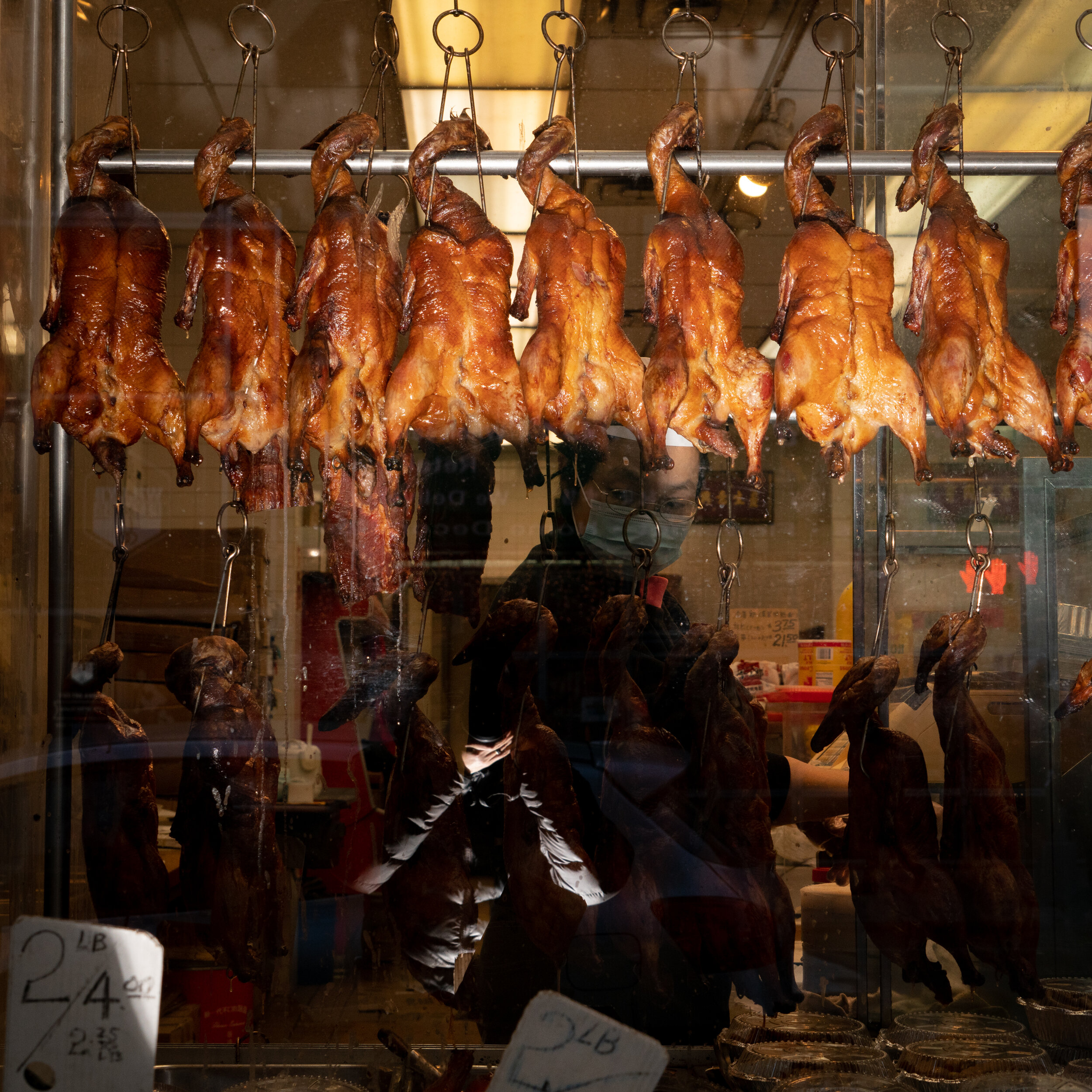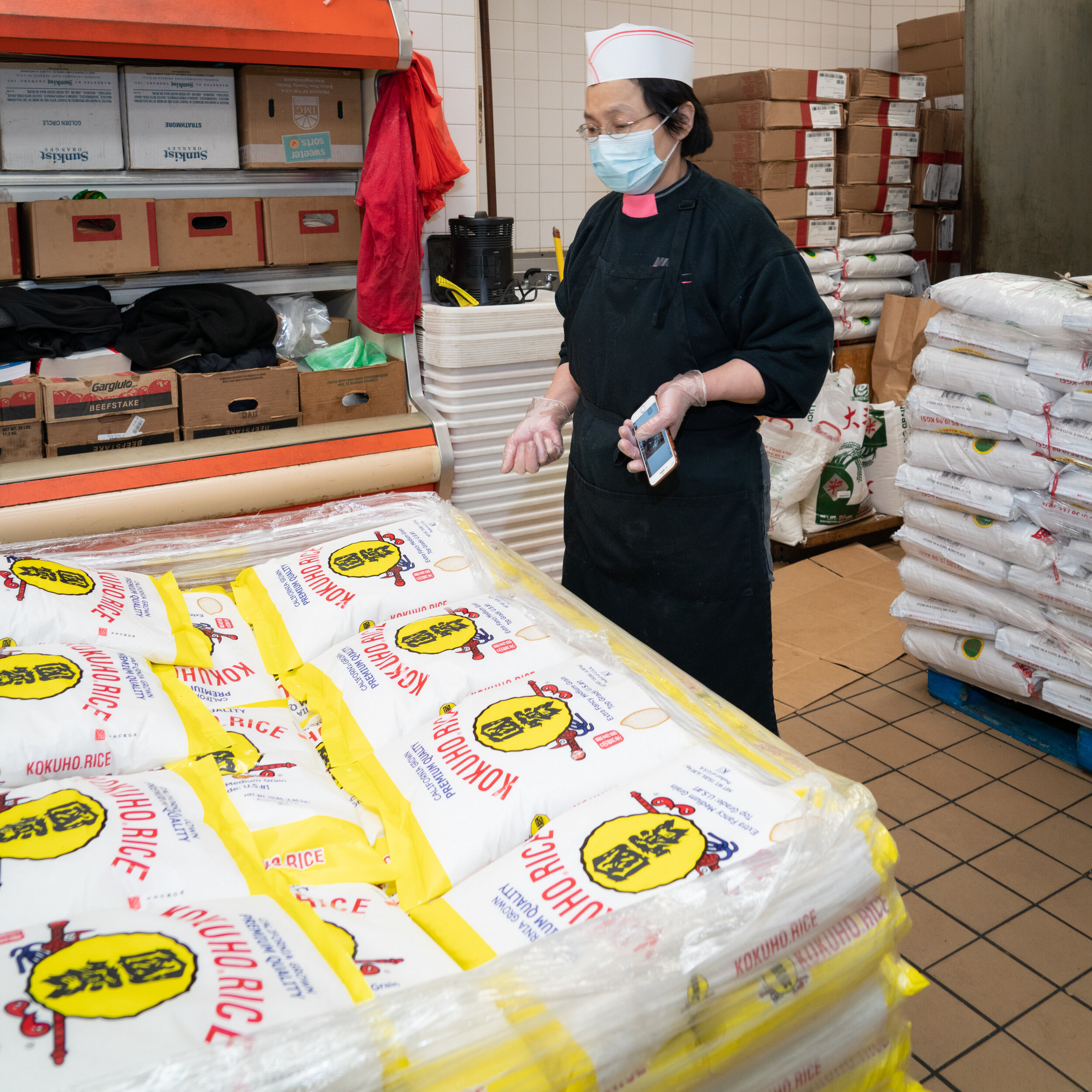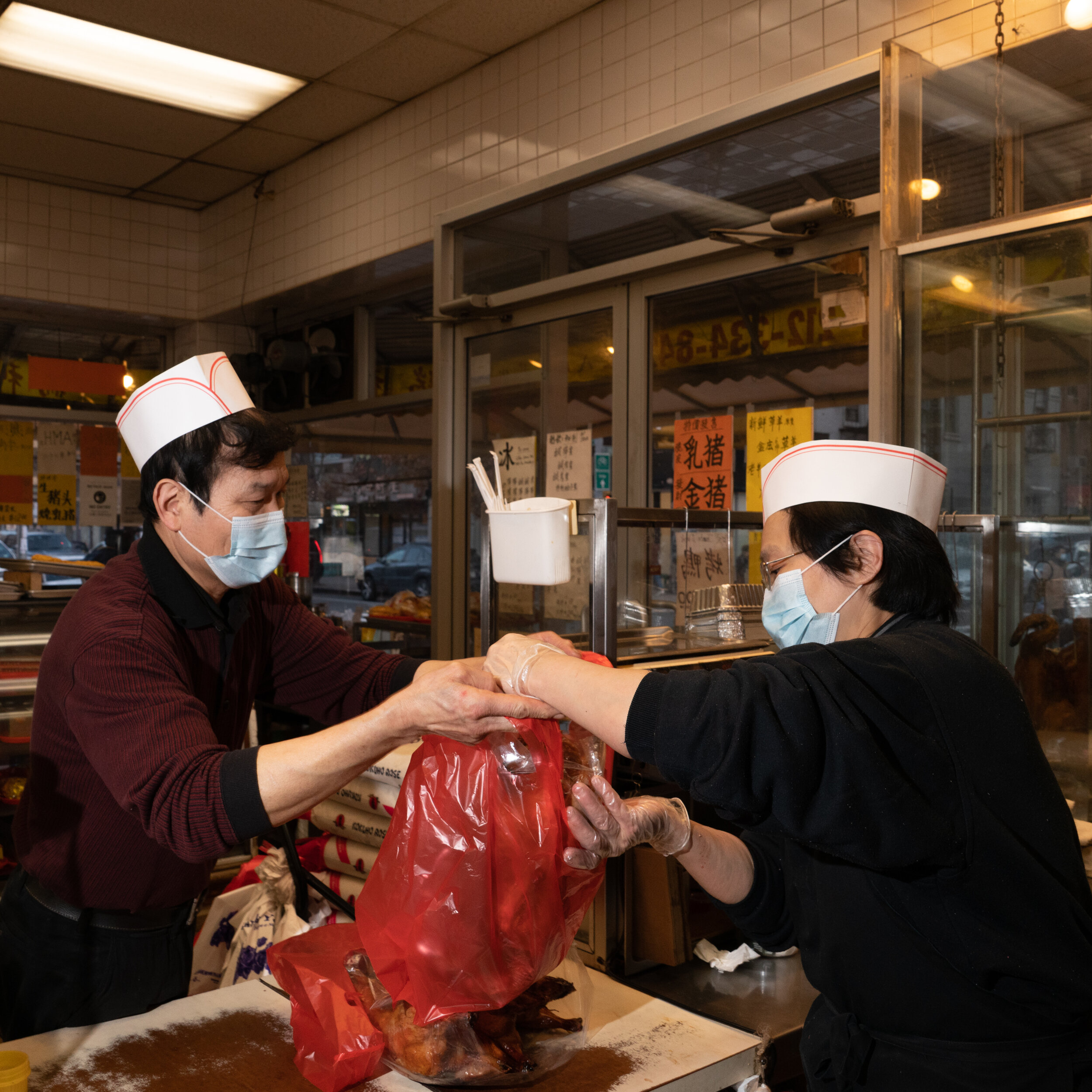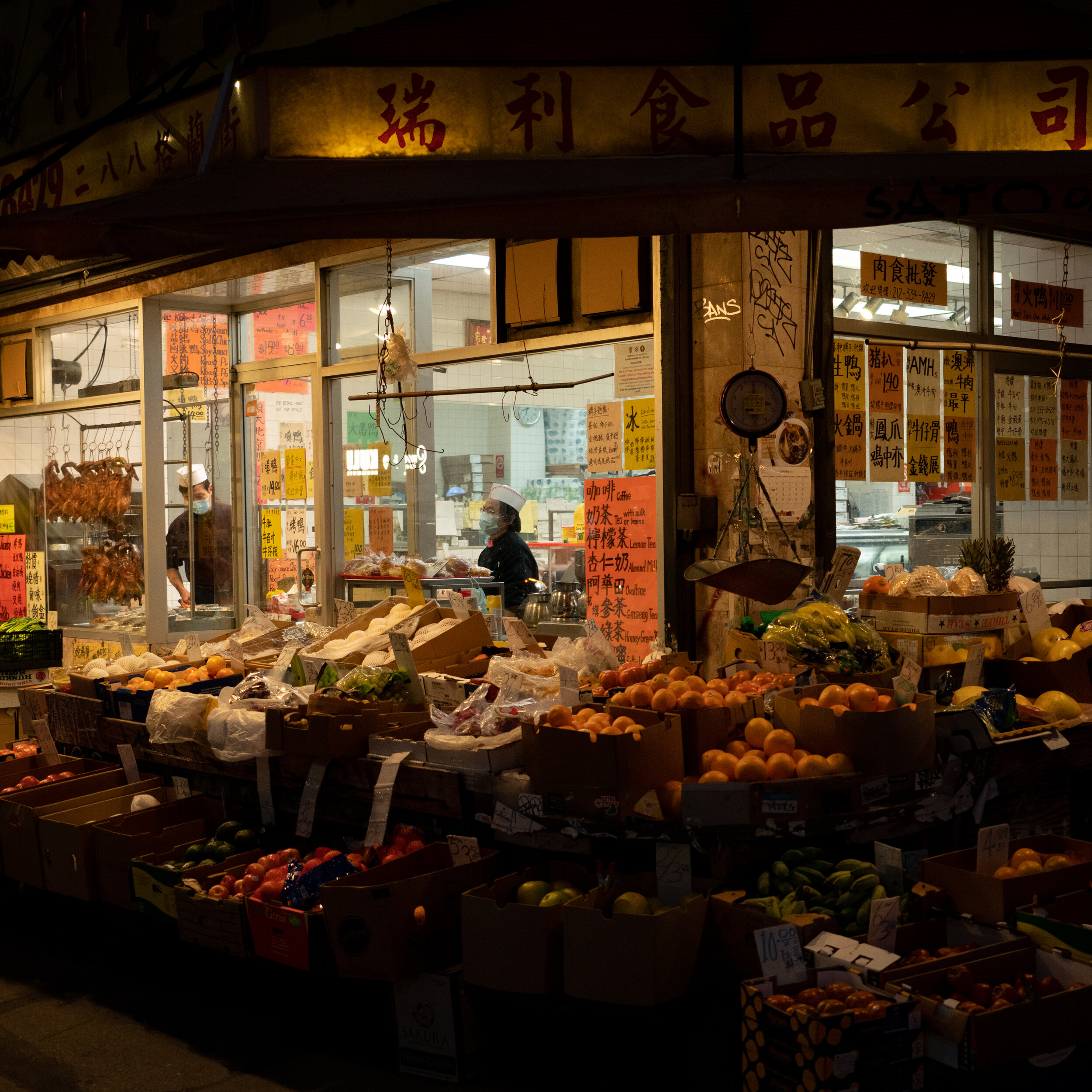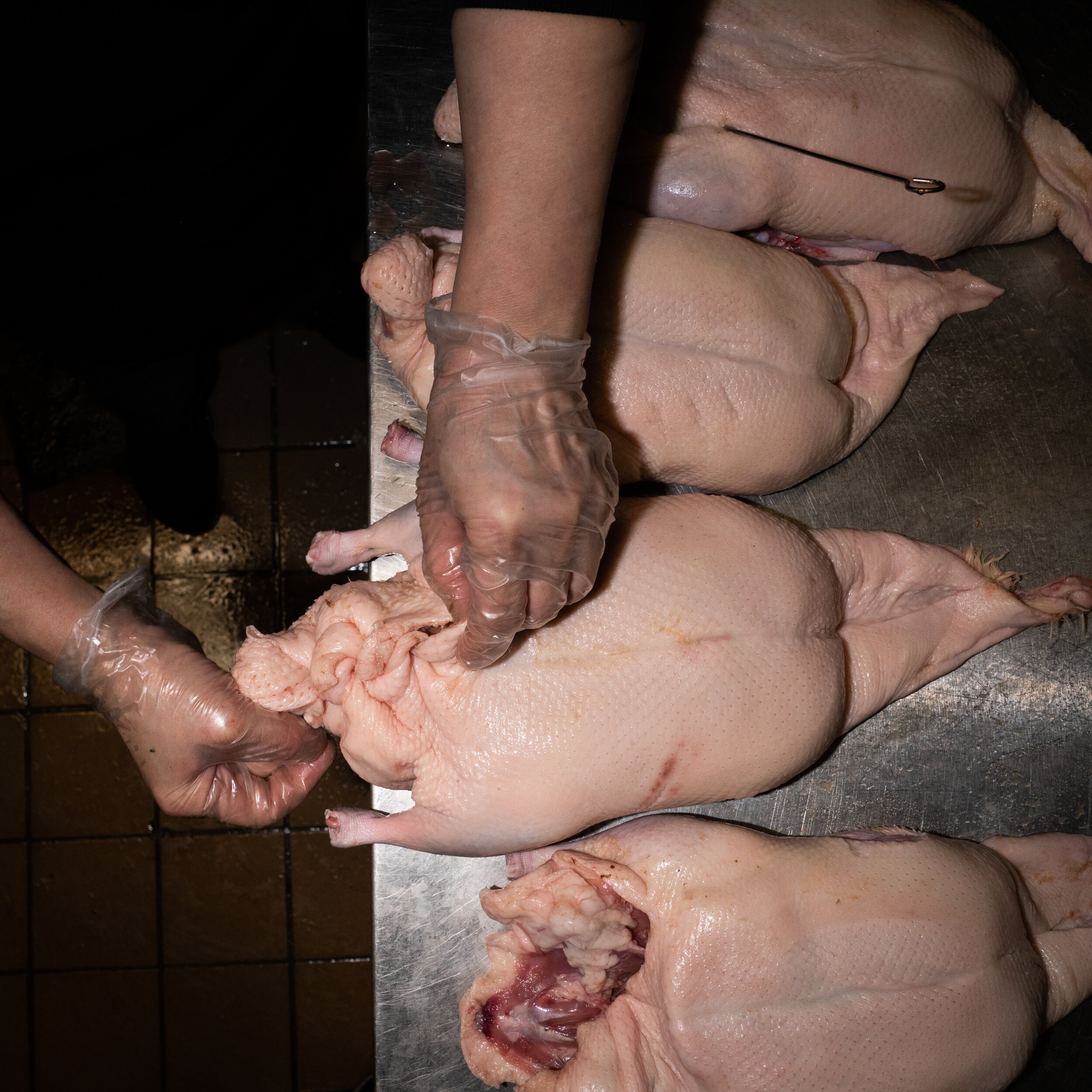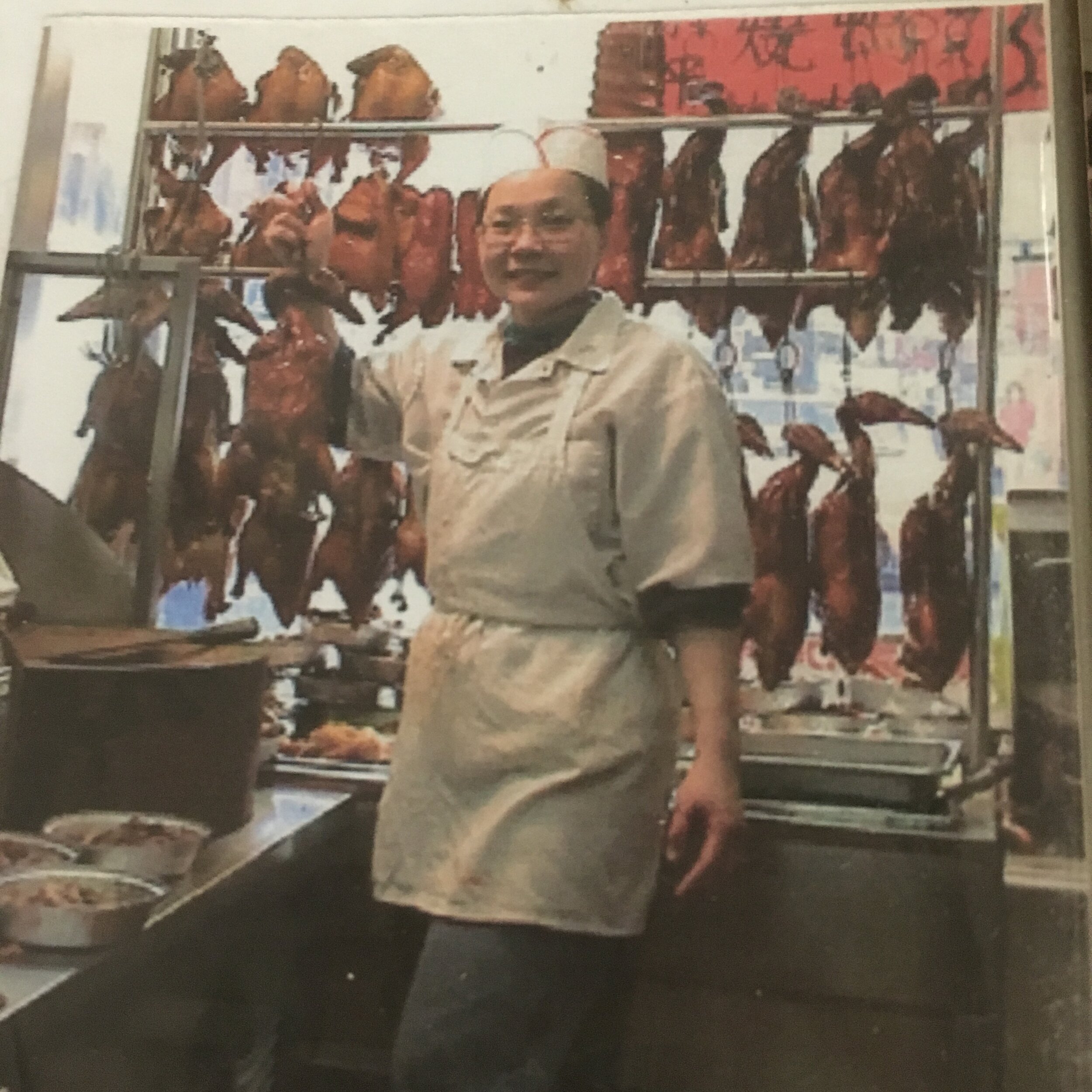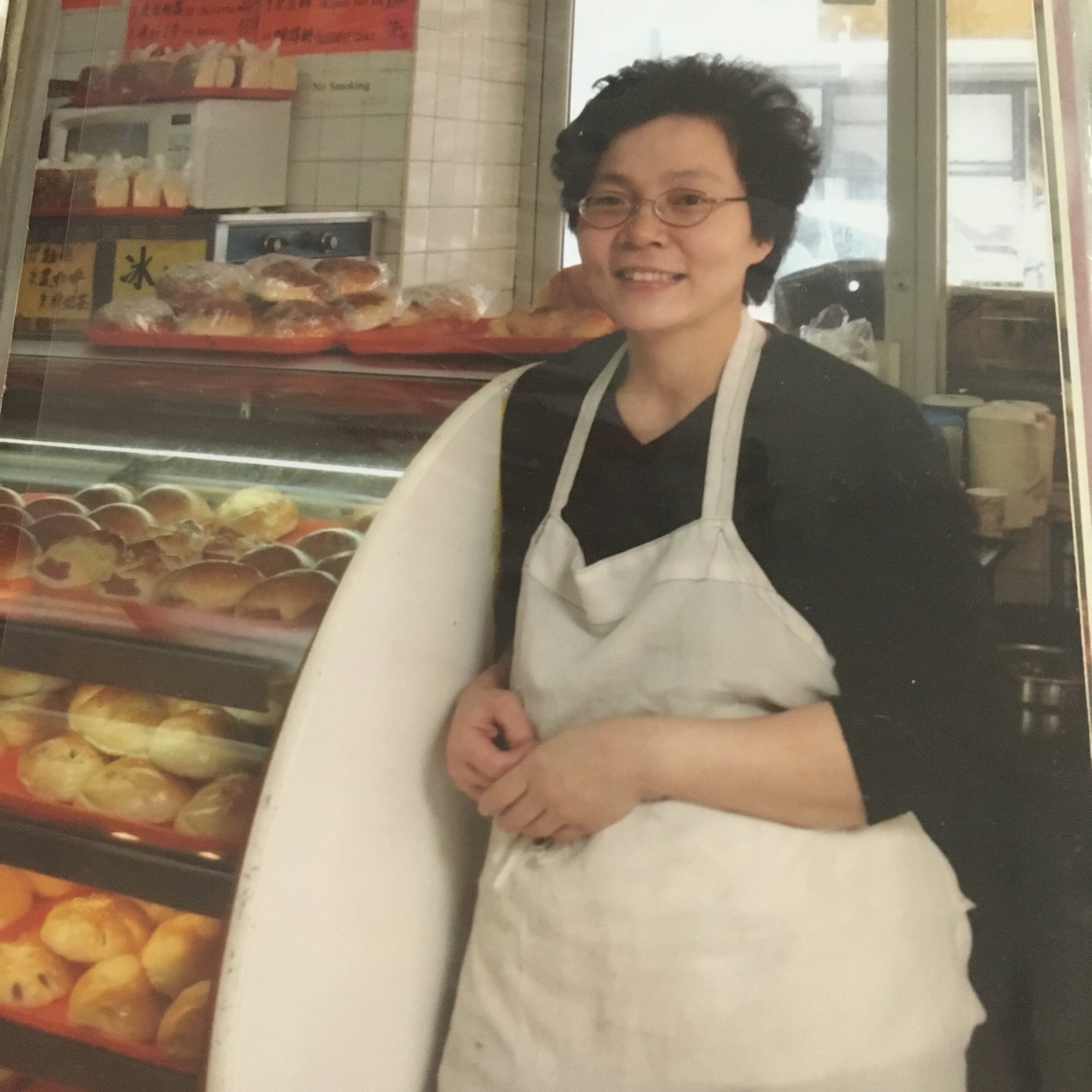Business Spotlight: Ben Meat Market
We’re excited to spotlight the first of our next round of Longevity Fund grant recipients: Ben Meat Market. Alice, the manager of Ben Meat Market, opened the store with her husband, George, in 1995. For the past 25 years, Ben Meat Market has been serving juicy roast meat and supplying pantry staples to the Chinatown community from its storefront at 288 Grand Street. Read on to learn more about how the business has been faring during COVID and why Alice decided to apply to the Longevity Fund.
To support Chinatown small businesses like Ben Meat Market, donate to the Longevity Fund here:
Ben Meat Market, then known as AA Meat Market, in 1995
Tell us about your business and who you are! How long have you been open? What do you sell at your store?
Hi! My name is Alice, and I am the manager of Ben Meat Market. I started the business in 1995 with my husband, George. When we first opened, we named our store AA Meat Market. Around 2005, we renamed the store to George Meat Market after my husband’s name. Our eldest son, Benson, is the current owner, and we renamed the store once again to Ben Meat Market when he took over the business in 2018, after my husband decided to retire.
Ben Meat Market is a combination of a mini grocery store and a Chinese deli. We sell all sorts of things: from 25lb bags of rice to noodles, fruit, soda, flour, and everything in between. However, we are the most well-known for our meats, hence our name. We sell both raw and cooked meat, but most of our customers come for our barbequed meats that we roast ourselves in the basement of our store. Our best-seller is our Chinese roast duck. We also sell lunch sets consisting of barbequed meat and rice for around $5, which is $1 - $2 cheaper than most places around Chinatown.
Photos by Fuxuan Xin
Could you tell us a little bit about your family and what inspired you to start your business?
My husband is from China, and I am from Hong Kong. My husband had been living in America for seven years before a mutual friend introduced us to each other. After that, my husband came to Hong Kong to meet me, and we were married there. After we married, we came to New York together and worked in the restaurant industry for about ten years. Over the years, we gained many new skills and ultimately decided to start our own business. We wanted to stay in the food industry because eating is essential and fundamental. It’s not like opening a clothing store where your customers’ spending is purely discretional. Everyone has to eat!
We decided to specialize in roast meats for two reasons: one, because there weren’t many places to buy good, authentic Chinese barbeque in Chinatown at the time and two, because the Chinese village that my father is from, Xinhui, is famous for its roast meat.
In particular, Xinhui is famous for roast goose (if you don’t believe me, you can look up videos of Xinhui roast goose on YouTube!). However, since we’re not allowed to roast geese in the States, we decided to roast duck instead. Traditionally, you would roast the duck / goose over a fire using wood from lychee trees but, since that’s not allowed in the States, we had to adapt and learn how to roast meat using a gas fire.
(Photos right: Alice and George at their market, 2003)
When COVID first hit NYC, what kinds of thoughts were running through your head?
I was very scared. I was scared because our business is our livelihood. I was also scared of getting the virus myself and putting my family in danger. I didn’t know how to protect my family because there were initially confusing messages about the masks, and the masks were very expensive. You had to walk very far to even find a box of masks.
Also, when the pandemic first hit, all 1,000 bags of rice that we had in stock were sold out. There were all kinds of supply chain issues, and we were worried that we wouldn’t be able to get enough inventory to satisfy our customers.
How have you been faring with the impact of COVID? What are some things that you have been doing to stay open?
Before the pandemic, we were open seven days a week from 8:30am to 8:30pm. We never really took breaks because our inventory is perishable, and there is a certain window of time during which you need to roast meat before it goes bad. Now, we are operating with reduced hours and are only open from 9:30am to 6:30pm. This new pandemic schedule has been an adjustment for us, as we were so used to working all the time.
Luckily, we were able to continue operating throughout the pandemic because we are classified as a supermarket. However, we had to let go of all our workers, as we couldn’t afford to pay them anymore.
In terms of operations, not much else has changed. All our groceries are sold at a lower price, to ensure our community can enjoy delicious food at a reasonable price. An ancient Chinese motto goes, “Many a little makes a mickle, water dripping into a river.” We’d rather work more to make our customers happier. What we earn is not important, and to be happy is the most important.
Due to the pandemic, the economy became weaker than ever, and we were hit as well. Customers preferred to shop online rather than visit the stores in person. Our store struggled to stay open and had to cut varieties to be alive, and also added ginseng products to attract more customers.
Our meat market is very dependent on demand. The small restaurants that used to buy from us don’t come as often anymore, and there are fewer people who are willing to buy our meal sets and eat outside. We’re just trying to stay afloat and get all the business we can get.
How has Welcome to Chinatown helped your business? How are you planning on using the Longevity Fund grant?
The reason why we applied for the grant is because we didn’t want the store to close during my son’s generation. The store is our livelihood and our legacy.
We are planning on using the grant to help with our utility bills. Our biggest expense each month is electricity, which can be between $2,000 - $3,000 a month. Our gas bill is also very high. Our utility bills are so high because we’re a meat market, so we need to keep the electricity and gas running at all times in order to roast our meats. We are very grateful that this grant can help us with some of these expenses.
Any plans for the future? Both amidst and beyond the pandemic?
We would like to open a second store someday. We would probably do something similar because we would want to leverage our reputation and customer relationships.
My hope is that Ben Meat Market will still be around years from now to offer Chinese barbequed meat to future generations. Unfortunately, the demand for roast meat is starting to wane. In Chinese culture, the older generation would typically order a whole roast pig or some other animal (like duck or chicken) to celebrate holidays and special events. But that sort of culture and thinking is disappearing with the younger generation.
How can people support your business?
Come stop by if you can! We understand that people’s disposable incomes have gone down significantly due to the pandemic. Some customers used to come in and buy a whole pound of roast pork, but now they are only buying half a pound. However, if you are around the neighborhood and want to try some yummy roast meat, please stop by for a visit!
Note: This interview was conducted in Cantonese with the help of a translator.
To learn more about Ben Meat Market’s history and story, visit HangryAlice.com, for the full interview.
Chinatown establishments like Ben Meat Market are what makes the spirit of our neighborhood. We need your support — now more than ever before — to keep that spirit alive. Please consider making a donation to our small business relief fund, The Longevity Fund, or help us spread the word of what’s at stake. Together, we can preserve Chinatown businesses and help say Chinatown will always be open for business.


